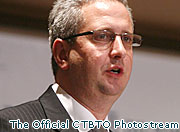Children should be protected from seeing online pornography, a “suppressed” Ofcom report has said.
Ofcom passed the report to the Government nine months ago, but the Coalition has not published it nor acted on its recommendations, according to the Guardian.
The Government said Ofcom’s report was still being considered. It had asked the watchdog to look at whether the law should be changed to protect children from pornographic material which was easily available from some websites.
Action
Alongside the paid for content, many of these websites also offer “try before you buy” material which can be easily viewed without a credit card or account number.
Ofcom’s report suggested the Government pass legislation which would force the sites to put their free content behind a PIN number.
Ivan Lewis, the Shadow Culture Secretary, said: “It is either incompetence or a deliberate attempt to keep the public and Parliament in the dark. Ofcom’s report should be published without delay so we can consider its findings and take the necessary action.”
Protect
Mr Lewis also called into question David Cameron’s commitment to act on last week’s separate sexualisation report, “now we know his Government has suppressed this important report”.
The Department for Culture Media and Sport (DCMS) said: “The Government is committed to protecting children from accessing harmful material and DCMS has requested advice from Ofcom and others regarding regulation of video-on-demand services.
“There is a range of views on whether new measures are required and we are currently considering options.”
Wallpaper
Last week’s Letting Children be Children report, which followed a six-month review of child sexualisation and commercialisation, called for age restrictions to be put on music videos to protect children.
It also said parents should have greater influence than viewers as a whole on decisions about what is suitable for children to watch on TV before the 9pm watershed.
Reg Bailey, who led the review said: “Society has become increasingly full of sexualised imagery. This has created a wallpaper to children’s lives.”

